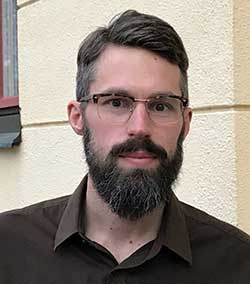Press release -
Baltic Sea universities to collaborate on environmental course development

“We have built a network for universities around the Baltic Sea because we strive to develop research and education on a circular economy, where the resources in the industry are used more efficiently,” says Karl Hillman, environmental researcher at the University of Gävle.
The network involves universities in Finland, Latvia, Russia and Sweden, and around 150 companies have received questionnaires to map their interest to collaborate as well.
The current project aims to develop courses or course modules together and to find reading list material and case studies.
“We think that we can build on one another’s competence, as well as on the differences in our countries, to strengthen all of our programmes,” Karl Hillman says.
Unique collaboration
Karl says that this kind of international collaboration focused on course development is unique, especially since it also involves collaboration with companies and students.
“We aim to identify the best companies for case studies in each country and then exchange students who will carry out our case studies, which will later on be used in our teaching in our programmes.”
Zero waste is our goal
At the University of Gävle, the project primarily concerns the programmes for environmental engineers and environmental strategists. Similar programmes are involved in Finland, Latvia AND RUSSIA?
Our environmental strategist programme combines environmental technology with social planning and environmental psychology to find the preconditions for a sustainable social development where everyone may lead an environmentally-friendly life.
“This precise combination of environmental technology, social planning and environmental psychology is totally unique for programmes in Sweden.”
“We share an interest for a circular economy, and resource efficiency is a part of all programmes that we intend to work with. In a long-term perspective, our aim is to avoid all kinds of waste completely in society, if possible.”
Not enough action
There are many solutions to environmental problems, technical ones as well as other ones, and Karl underlines that, in principle, we know what to do, but not much is happening.
“We fail to apply solutions at hand, and I think that the problem is our mind-set. Environmental psychology concerns exactly that: how we can understand our actions and their consequences for the environment.”
Our programmes stand to gain from internationalisation
Karl is convinced that this collaboration will increase the quality and attraction of our programmes. Moreover, we will gain important experiences and possibilities to build networks for the students who will conduct case studies in other countries than their own.
“We plan to develop a master programme, and internationalisation is a natural part of any such development.”
He also envisions that working in this kind of network will lead to joint research projects.
“Among other things, we are interested in developing our research within biogas, transportation and the circular economy together with these five other higher education institutions,” Karl Hillman says.
For more information, please Contact:
Karl Hillman reader in environmental engineering, University of Gävle
Phone: 026-64 8414, 070-191 45 59
Email: karl.hillman@hig.se
Text & photo: Douglas Öhrbom
Topics
- Business enterprise, General
Categories
- internationalization
- research
- circular economy
- karl hillman
- resource efficiency
- environmental psychology
- environmental engineers
- environmental strategists
- baltic cooperation
- environmental research
- university of gävle
- sustainable living environment
Education and Research at a Scenic Campus.
The University of Gävle has approximately 17 000 students, more than 50 study programmes and second-cycle programmes, about 1 000 courses in humanities, social and natural sciences and technology.
Research Profiles
Built Environment and Health-promoting Working Life are the general research profiles of the higher education institution. Important parts included are Spatial Planning with a specialisation in Sustainable Built Environment and Musculoskeletal Disorders with the purpose to prevent work-related injuries. In 2010, the higher education institution received permission to carry out third-cycle programmes in the profile area of Built Environment.
The higher education institution has applied for permission to carry out third-cycle programmes in technology, humanities and social sciences.
